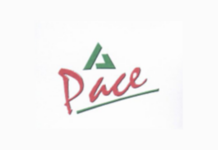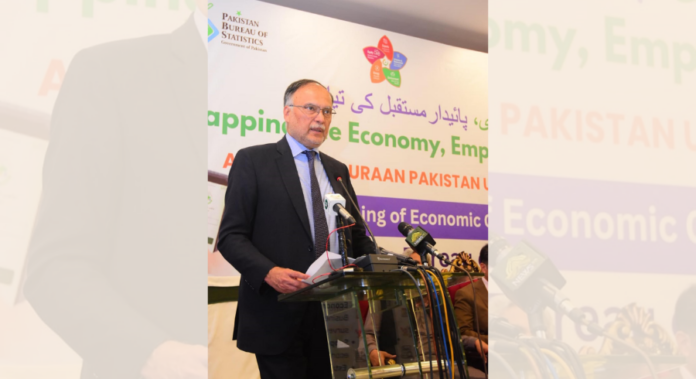Pakistan’s first-ever Economic Census 2023, officially launched by Minister for Planning Ahsan Iqbal, has provided crucial data on the country’s economic landscape, revealing a total of 7.2 million economic establishments that employ 25.34 million people.
The census highlights the services sector as the largest contributor to employment, with 45% of the workforce engaged in this sector.
Of the 7.2 million establishments, retail shops are the dominant unit type, making up a significant share of the services sector, which accounts for 57.86% of all establishments. Manufacturing, by contrast, represents a smaller proportion, with 23,000 factories and 643,000 small production units recorded.
Punjab leads in both the number of economic units and the size of the workforce, with over 4.2 million establishments employing 13.64 million people.
Sindh, with 1.38 million establishments, follows as the second-largest contributor to the workforce, employing 5.71 million people. In terms of sectoral distribution, Punjab excels in both production and services, while Sindh leads in the services sector, particularly in retail trade.
Khyber Pakhtunkhwa and Balochistan, however, show relatively fewer establishments and smaller workforces.
The census also uncovered that 7.1 million establishments employ fewer than 50 people, with medium-sized establishments (51-250 employees) totaling just 35,351 and large enterprises (over 250 employees) numbering only 7,086. This points to a predominance of small businesses in the economy, with significant potential for formalization and expansion.
In the social sector, the country has 600,000 mosques, 36,000 madrassas, and 119,789 hospitals, the majority of which are private institutions. Household-based economic activities also feature prominently, with more than half of households involved in animal farming, while smaller percentages engage in tailoring, embroidery, and poultry farming.
Minister Iqbal emphasized the importance of this census in enabling evidence-based planning and addressing the lack of reliable data in Pakistan’s economic history. He also noted that while neighboring countries have conducted regular economic censuses, this was Pakistan’s first such initiative since its independence, completing a critical gap in the country’s data collection infrastructure.
























